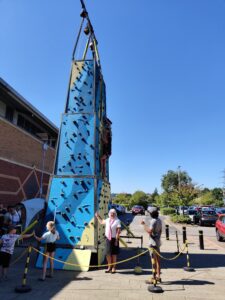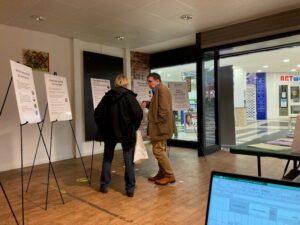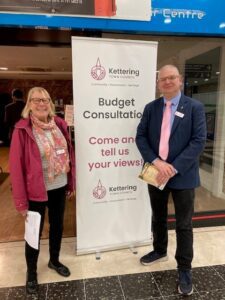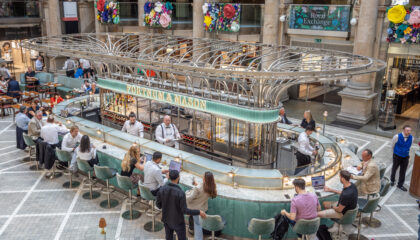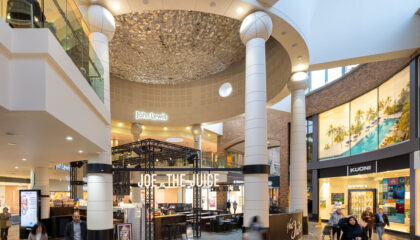The past 36 months have been tough for retailers and hospitality. Now, under a cloud of looming recession, retail and leisure destinations – and their consumers – are facing into the headwinds of another challenging year. But it’s not all bad news, writes Nick Hilton, Partner, Retail and Leisure.
A major challenge for the real estate sector, and the communities it serves, is how to reduce the amount of empty and underutilised space in retail and leisure destinations. On this front, there’s no question that collaboration with local communities to deliver social value will be key.
An average of 47 shops closed their doors permanently each day across the UK in 2022 according to analysis by the Centre for Retail Research. In total, this equates to 17,145 store losses, up by nearly 50% compared with 2021.
But although the outlook may seem bleak, it’s not all bad news: data from the British Retail Consortium shows that in the final quarter of 2022, the overall vacancy rate improved to 13.8%, which was marginally better than Q3 and 0.6 percentage points better than the same period in 2021. Positively, this was the fifth consecutive quarter of improved vacancy rates.
With retail spaces sitting at the heart of our neighbourhoods, many developers, owners, and managers of retail property across the UK are now evolving their models to tap into the needs and interests of their own communities, in an effort to drive engagement and embed themselves into their local area.
Building the Social value: How to make places that help people
Successful reinvention of retail space lies in creating mixed-use destinations that meet community needs and aspirations, by talking with and listening to local people. Skilled and experienced onsite property management teams create close links with local councils, schools, and social enterprises to commercial property in the local area, helping buildings contribute to vibrant communities.
Shopping centre owners, including Hermes, Ellandi and New River, and their Workman onsite property management teams, are maximising opportunities to convert space into alternative uses that meet the needs of local people.
At Crystal Peaks shopping centre in Sheffield, Free Friday Family Fun Days were organised throughout the summer holidays in 2022; featuring free sessions to learn skateboarding and climbing, as well as inflatables and bouncy castles. This evolved into the centre’s Game On family activities, where a vacant unit was converted into a free family game space including table tennis and football, chess, giant Jenga and Connect4 and other board games.
Centre owner Hermes funded the provision of the equipment, and the facility (pictured above) was opened in July for the summer holidays and then subsequently at weekends and holidays. It has been hugely popular as a free way for families to spend quality time together, especially relevant during the cost-of-living crisis. The centre management team has since liaised with local authority youth services team about using the space as a location for enhanced youth engagement in 2023.
Voluntary groups been hard hit over the past few years, and with this in mind the Workman onsite centre management team at Ellandi’s Newlands shopping centre in Kettering invited a selection of local groups into the centre to promote their activities and raise funds. For example, The Friends of the Kettering Art Gallery regularly uses a vacant unit to display art and hold teaching sessions. This brings a diverse mix of social groups into the centre, and helps embed the scheme into the daily lives of previously untapped sections of the local community.
Newlands has also been used by the NHS, North Northants council and Kettering Town council, which held its budget consultation programme at the centre. This provided a central venue where members of the public could meet their local councillors and discuss the proposed budget.
Local movement: reaching out to schools and charities
Of course, these are just a few examples of how retail spaces are taking the needs of individual communities into account. The community approach not only appeals to funders looking to meet their ESG requirements, it also simultaneously attracts the support of local authorities, while playing into the local movement seen in the wake of the pandemic.
As part of this, Newlands has also selected local contractors for roles such as security and cleaning, which has proved a positive move; not only are the employees on hand immediately, it also helps that the company is known by the local community, which adds a more proprietary feeling within the local areas.
Despite the threat of looming recession, many retail assets have increased their investment for building the social value in a bid to become part of the communities they serve, cementing themselves into the lives and minds of occupiers and consumers, not only by offering empty units to social schemes, focusing on local suppliers and employees, or creating new facilities for use by community groups, but also by reaching out to local schools and charities.
At New River’s Prospect Centre in Hull, the Workman onsite team worked with Parkstone Primary School to design flags for the Queen’s Platinum Jubilee in May 2022. The centre management team then returned to the school after judging the designs to advise on a winner from each age group and present prizes. A local radio station attended on the presentation day to interview the winning children, and the local newspaper also showcased the work, which was exhibited in the shopping centre for people to view in the Prospect Gallery. This brought in many of the children and families involved, creating close ties with the local community and a halo effect for the centre.
Measurement: put social value before profit to reap rewards
For investors, the return on investment of social value schemes may be difficult to quantify in the short term, and must instead be considered in terms of the ongoing value of an asset’s position within the community. Investors such as Schroders Capital recently launched a £1bn real estate fund that aims to deliver positive social impact outcomes across the UK’s most deprived towns, though it’s not clear as yet how these outcomes will be quantified.
In order to measure the value of social investment, landlords must look beyond the numbers, and instead consider: are community facilities offered at retail locations being utilised? Are the needs of the local community being monitored and met? Is the local community being drawn into the scheme and integrated?
Certifications like WELL, FITWEL, BREEAM, and LEED incorporate social elements into their criteria, but essentially social value is a dynamic and long-term investment that must be designed for the community which it serves.
While it is difficult to quantify the impact of social value programmes, the risk of not committing to such schemes could be far more damaging in the long term, particularly for retail and leisure destinations which rely on their community appeal.
How does Workman help retail schemes create social value?
Building the social value involves engaging communities both within and around a development. When buildings support environmental, economic, and social wellbeing, they improve the quality of life of people using them by providing access to services and integration into the wider economy and society. Across the Workman-managed portfolio, our strategies are specifically designed to engage occupiers and visitors, to draw in the local community, and make buildings a part of the local community.
Building the Social value creates a shared benefit for stakeholders from the private sector, public sector, and communities. Whether through the creation of local employment opportunities, the maximisation of commercial space, or the delivery of community programmes, the outcome should remain the same: positive social impact that creates change for good.


